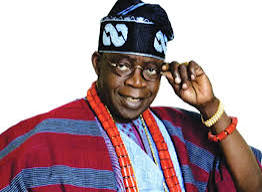
Hauwa Ali
For decades, Ogoniland in Nigeria’s Niger Delta has been a symbol of broken promises, environmental devastation, and government neglect. The region, rich in oil but battered by pollution, has long sought justice and restoration. Now, President Bola Tinubu has stepped into this long-standing crisis, vowing to do what his predecessors could not—clean up Ogoniland, empower its people, and bring lasting peace. But can he truly succeed where others have failed?
Nestled in Rivers State, Ogoniland is one of Nigeria’s most resource-rich regions, yet its people have suffered immensely. Decades of oil exploration, primarily by Shell, have left the land and water bodies contaminated. Farming and fishing, the main livelihoods of the Ogoni people, have been crippled by pollution, forcing many into poverty.
The fight for justice in Ogoniland gained global attention in the 1990s when activist Ken Saro-Wiwa and the Movement for the Survival of the Ogoni People (MOSOP) challenged the Nigerian government and oil companies over environmental destruction. The brutal response—Saro-Wiwa’s execution in 1995—deepened the rift between the Ogoni people and the government. Since then, successive administrations have pledged to clean Ogoniland, but progress has been painfully slow.
President Tinubu’s intervention in Ogoniland comes with bold promises including environmental restoration by accelerating the UNEP-backed Ogoni Cleanup Project; economic Empowerment – Creating jobs and development projects to lift people out of poverty; Security and Peace – Engaging with local leaders and ex-militants to prevent renewed unrest.
So far, Tinubu has taken some concrete steps. He appointed Professor Nenibarini Zabbey as the Project Coordinator of the Hydrocarbon Pollution Remediation Project (HYPREP), signaling a shift toward expertise-driven leadership. Additionally, he has engaged with Ogoni leaders and traditional rulers, urging unity and collaboration to move the cleanup forward. His administration has also directed the National Security Adviser to coordinate negotiations and consultations aimed at fostering trust.
Furthermore, Tinubu has pledged increased funding for HYPREP and ordered an audit of previous cleanup efforts to assess mismanagement and corruption that have hindered progress. This move has been praised by some stakeholders, but critics warn that audits alone won’t solve systemic inefficiencies.
Despite these efforts, skepticism lingers. Many Ogoni people have heard similar promises before, only to be left disappointed when political interest fades.
The UNEP report released in 2011 called for urgent environmental remediation, but progress has been sluggish. One major concern is the mismanagement of HYPREP, including issues with inexperienced contractors and a lack of transparency. If Tinubu is serious about delivering results, he must ensure funds are properly allocated and cleanup efforts are handled efficiently.Additionally, environmental scientists warn that without proper supervision and enforcement mechanisms, the cleanup could remain largely superficial. The Ogoni people should see real action, not just reports and press releases.
Years of broken promises have created deep-seated distrust. Tinubu’s ability to rebuild confidence will depend on his administration’s consistency in delivering tangible results, not just political speeches. Ogoni leaders, while cautiously optimistic, need proof that this time will be different.
To address this, some activists have proposed the creation of an independent monitoring body composed of local community representatives, environmental experts, and international observers to oversee the cleanup process. Whether Tinubu’s government will adopt such measures remains to be seen.
One of the most contentious issues is the potential resumption of oil production in Ogoniland. While some see it as a path to economic recovery, others—especially environmental groups—fear it will undo any progress made in cleaning up the region. Over 20 organizations, including Environmental Rights Action/Friends of the Earth Nigeria, have called for a halt to oil resumption talks until full remediation is achieved.
Reports indicate that some multinational companies have expressed interest in returning to Ogoniland for oil exploration, raising concerns that economic incentives may override environmental and social considerations. Tinubu must tread carefully, ensuring that development does not come at the cost of further pollution.
The Niger Delta has a history of armed resistance fueled by perceived exploitation. If Tinubu fails to address the region’s economic and environmental grievances, the risk of renewed militancy remains high. Sustainable peace can only come from genuine empowerment and restoration efforts.
Additionally, concerns about the proliferation of armed groups in the region have resurfaced, with some ex-militants warning that failure to fulfill promises could lead to renewed agitation. Tinubu’s security team will need a multifaceted approach that combines dialogue, economic opportunities, and effective policing.
Reactions to Tinubu’s efforts have been mixed. Some Ogoni leaders appreciate his engagement, noting his historical ties to their struggle. Others, particularly environmental activists, remain wary, emphasizing that economic development should not come at the cost of environmental justice.
Groups like the Africa Network for Environmental and Economic Justice (ANEEJ) have stressed the need to complete the cleanup before discussing oil resumption. There are also calls for a broader approach, with some activists demanding a $1 trillion fund for Niger Delta remediation and compensation for decades of damage.
Furthermore, international organizations like Amnesty International and the United Nations have urged the Nigerian government to adopt best practices in environmental cleanup and human rights protection, ensuring that affected communities receive proper compensation and relocation assistance where necessary.
President Tinubu’s engagement with Ogoniland represents a critical test of his leadership. If he can accelerate the cleanup, ensure transparency, and genuinely involve the Ogoni people in decision-making, he could leave a lasting legacy. However, if his efforts prove to be another cycle of empty promises, Ogoniland will remain a painful reminder of Nigeria’s history of neglect.
To achieve success, Tinubu’s administration must take concrete steps, including strengthening HYPREP’s management, ensuring local community participation, enforcing corporate accountability for oil companies, and providing alternative economic opportunities beyond oil. Only then can Ogoniland see true progress.The coming months will reveal whether Tinubu’s intervention is a turning point or just another chapter in Ogoniland’s long struggle for justice.
